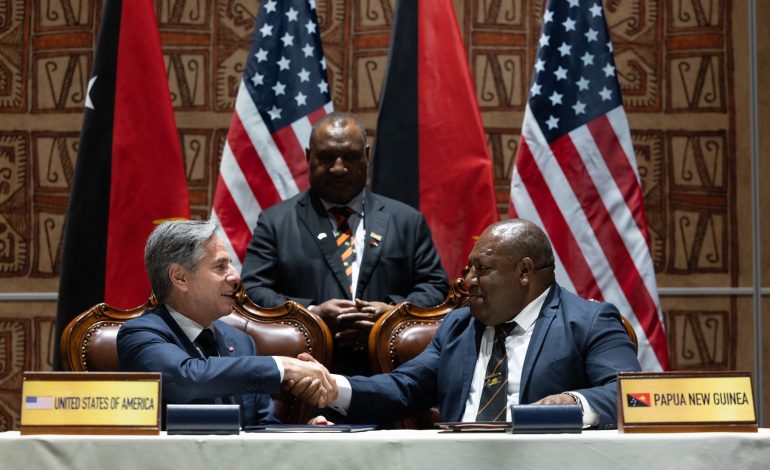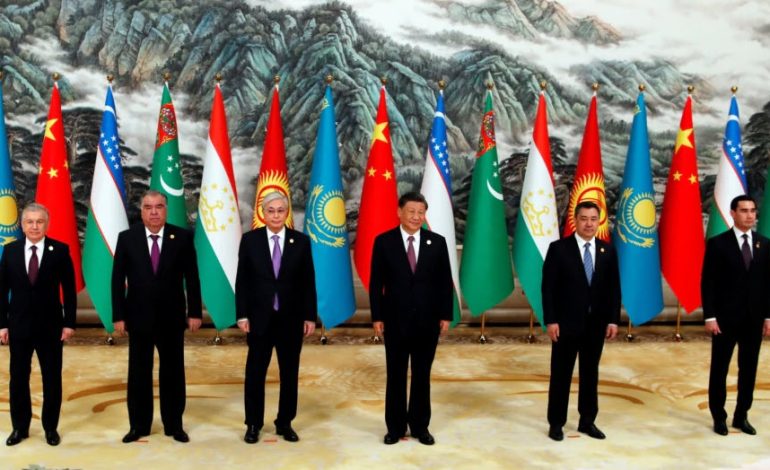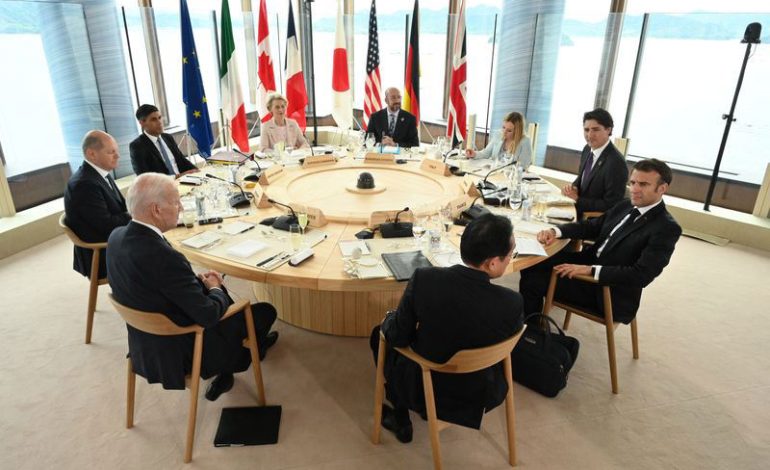
Despite Biden’s Absence, US Makes Inroads With Pacific Islands
By Nick Perry and Shannon Tiezzi
23 May 2023
While disappointment lingered over U.S. President Joe Biden’s decision to cancel his trip to Papua New Guinea, U.S. Secretary of State Antony Blinken attended meetings in Port Moresby in his stead. While the symbolism of the first visit by a sitting U.S. president to the Pacific Islands was deeply missed, the trip still marked key advances for U.S. partnerships in the region.
Among the major deliverables, the United States signed a new security pact with Papua New Guinea on Monday, seen as a key victory in the competition with China for strategic influence.
Papua New Guinea’s location just north of Australia makes it strategically significant. It was the site of fierce battles during World War II, and with a population of nearly 10 million people, it’s the most populous Pacific Island nation.
The State Department said the new agreement provides a framework to help improve security cooperation, enhance the capacity of Papua New Guinea’s defense force, and increase regional stability. The full agreement will be made public once politicians in both countries have an opportunity for input, likely in a couple of months.
“The work that we’re doing together to try to shape the future could not be more important, could not be more timely,” U.S. Secretary of State Antony Blinken told reporters. “We’re deeply invested in the Indo-Pacific because our planet’s future is being written here. Papua New Guinea is playing a critical role in shaping that future.”
Papua New Guinea Prime Minister James Marape said the pact is mutually beneficial and “secures our national interests” in “becoming a robust economy in this part of the world.”
But the agreement sparked student protests in the second-largest city, Lae. And many in the Pacific are concerned about the increasing militarization of the region.
Student Naomi Kipoi, 17, said she was opposed to the security pact because she felt it means the United States could come to her country whenever it pleased without permission. She said China had been a big help to her country by building roads and funding schools.
“The U.S. didn’t help us with aid and other things,” Kipoi said. “They’re just trying to sign the agreement.”
Last year, nearby Solomon Islands signed its own security pact with China, a move that raised alarm throughout the Pacific. Washington has increased its focus on the Pacific, opening embassies in Solomon Islands and Tonga, reviving Peace Corps volunteer efforts, and encouraging more business investment.
But some have questioned how reliable a partner the United States is in the Pacific, particularly after Biden canceled his plans to make a historic stop in Papua New Guinea to sign the pact. Biden ended up canceling trips to Papua New Guinea and Australia to focus on the debt limit talks back at home.
Blinken traveled in Biden’s place, arriving in Papua New Guinea early Monday. In response to news of Blinken’s impending visit, China warned against the introduction of “geopolitical games” into the region.
As well as the defense pact, the United States also signed a maritime agreement with Papua New Guinea which will allow the U.S. Coast Guard to partner with the Pacific nation to counter illegal fishing and drug smuggling.
Also while in Papua New Guinea, Blinken will oversee signing ceremonies for renewed Compacts of Free Association (COFAs) with Palau and the Federates States of Micronesia (FSM).
The COFA with Palau “will ensure that this partnership continues to deliver for our people, including by tackling the climate crisis, promoting sustainable economic development, bolstering our security,” Blinken said in remarks at the signing ceremony on Monday.


